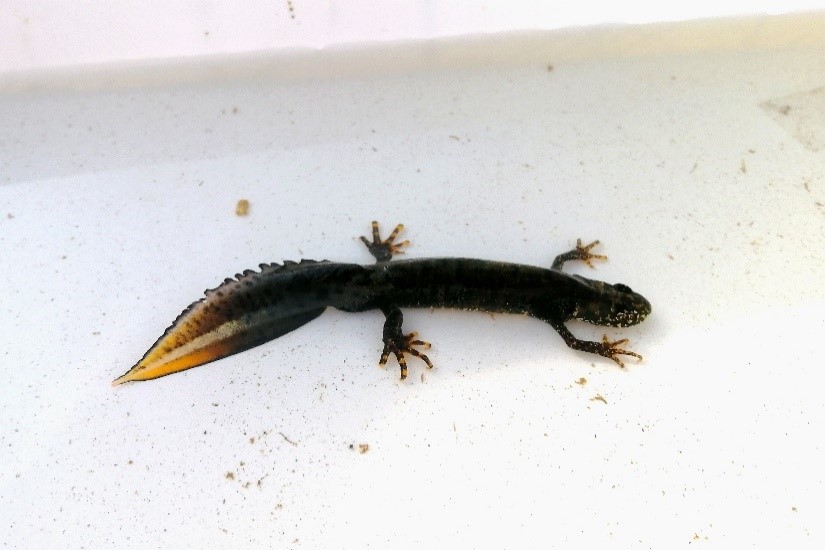
£240,000 for newt conservation
South Oxfordshire and the Vale of White Horse District Councils have helped raise more than £240,000 for great crested newt habitats.
The funds have been raised over three years through an ongoing, innovative conservation scheme to protect the newts, which are a European protected species.
The councils have a Natural England licence allowing them to authorise developers to undertake work that may impact the newts. In return, the developer invests in habitat creation and maintenance, providing the newts with new places to thrive.
So far 13 developments have been authorised (five in South Oxfordshire and eight in the Vale). These have resulted in 23 high quality great crested newt ponds being created as well as 116 hectares of terrestrial habitat. Funds are also secured to ensure management and monitoring of this habitat for at least the next 25 years.
Cllr Anne-Marie Simpson, South Cabinet Member for Planning, said: “One of our corporate priorities is protecting and restoring our natural world. Our great crested newt populations are an important part of our natural world and the rich ecology and biodiversity of our district. I am so pleased that this project allows us to not only mitigate for any habitat lost from essential building work but provides better ponds and areas where newts and other species can thrive.”
Cllr Catherine Webber, Vale cabinet member for Climate Emergency and Environment, said: “We’re proud of our wildlife habitats across the Vale of White Horse district. To help protect and enhance them we’ve included developing a Biodiversity Net Gain targeting strategy in our Corporate Plan. This project is an example of Biodiversity Net Gain, providing well managed habitats for great crested newts and other species. It means the biodiversity of the district is in a better state after developments have been built than it was before.”
Ends
Note to editors:
1. NatureSpace is the council’s delivery partner for district licencing. The Newt Conservation Partnership’s latest monitoring report was released recently and can be read here.
2. District councils have a statutory duty to conserve biodiversity and ensure compliance with relevant environmental and wildlife legislation.

